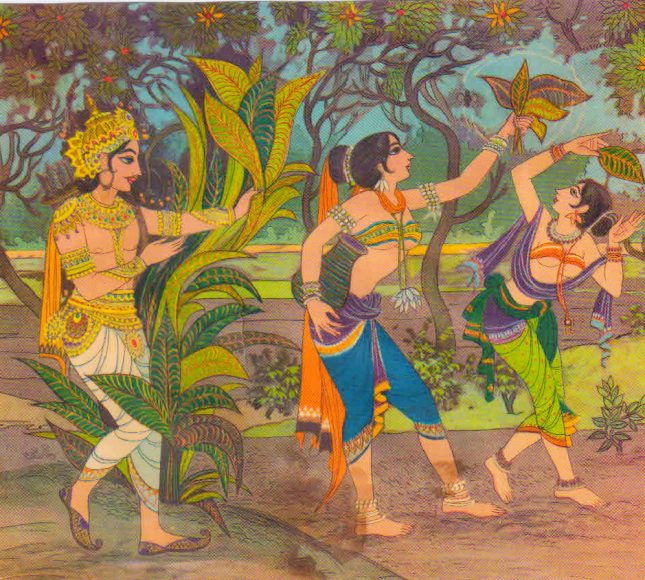LUBHATA Ajamila, Pingula, Lubhata and Kunchara (elephant) went to the abode of the Lord. Such like evil persons attained salvation, why can’t you, O Ravidas! (Kedara Ravidas, p. 1124) The word Lubhata has been used for a hunter named Lodia. He did selfless service of the saints. He got good game on a day and offered one of his preys to the saint. The saint told him that it was of no use to him.
He advised him to bring the game of one bearing conch-shell, discus and mace.The hunter tried to find out such a victim, but could not do so. In utter disappointment, he wanted to commit suicide, the Lord then manifested Himself before him.
References :
1. Kohli,Surindar Singh ed,Dictionary of Mythological References in Guru Granth Sahib 1993
In Sikh mythology, the name Lubhata is mentioned in the context of spiritual teachings found in the Guru Granth Sahib, the holy scripture of Sikhism. While Lubhata is not a central figure in Sikh mythology, his story is used metaphorically to highlight important spiritual lessons about devotion, selflessness, and the potential for redemption.
Lubhata’s Story
Lubhata’s tale appears as part of the broader allegories and teachings within Sikh scriptures. He is depicted as a hunter who, through the act of serving holy saints, demonstrates the transformative power of devotion. Initially, Lubhata offers the saints his catch but is instructed to bring prey bearing divine symbols, such as the conch-shell, discus, and mace associated with Lord Vishnu. Unable to find such prey, Lubhata feels a profound sense of failure. In his moment of despair, divine intervention takes place: Lord Vishnu manifests before him, rewarding his sincerity and granting him salvation.
Spiritual Lessons from Lubhata’s Story
- The Power of Devotion:
Lubhata’s story emphasizes that sincere devotion, even from individuals who are initially misguided, can lead to spiritual awakening and divine grace. It reflects the Sikh belief that no one is beyond redemption if they turn toward God with genuine intent. - Selfless Service (Seva):
His actions embody the Sikh principle of Seva, or selfless service. Lubhata’s humility and willingness to serve the saints illustrate the idea that serving others in the name of God is a path to spiritual enlightenment. - Transformation of the Fallen:
The narrative of Lubhata is used to demonstrate that even those who are considered “fallen” or “sinful” can attain divine grace if they embrace virtues like humility, devotion, and service. This aligns with the Sikh belief in universal salvation and the rejection of caste or social hierarchies. Mention in Guru Granth Sahib
While Lubhata’s story is referenced in Sikh teachings, it is presented as a metaphor or moral example rather than a detailed narrative. The Guru Granth Sahib often incorporates allegorical tales like this to explain complex spiritual concepts in a relatable way for followers. Connection to Sikh Philosophy
Sikhism emphasizes that spirituality is accessible to all, regardless of their background or past deeds. Stories like Lubhata’s serve as reminders of the universal applicability of Sikh teachings and the importance of qualities like humility, devotion, and selfless service in achieving union with the divine.



